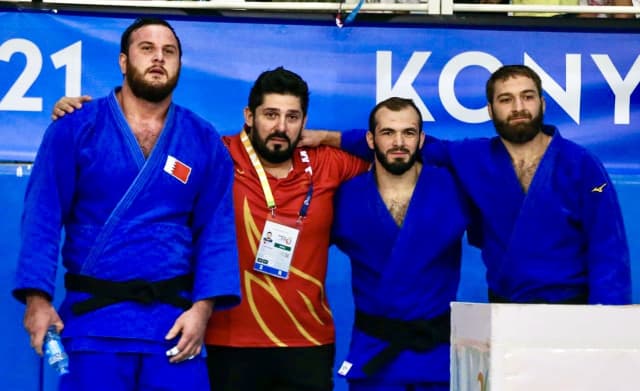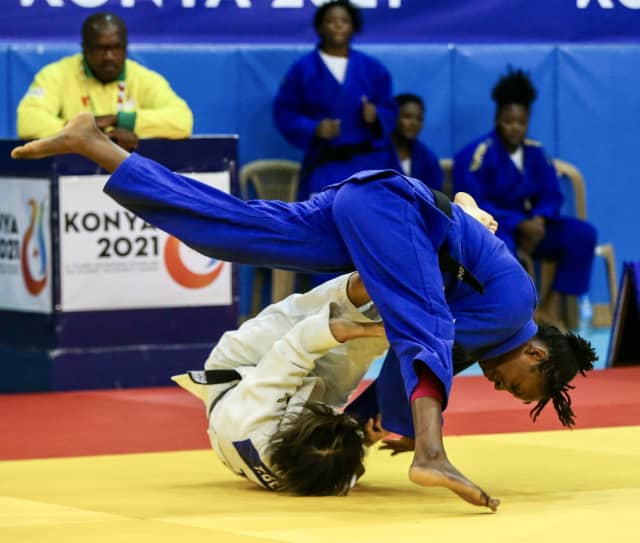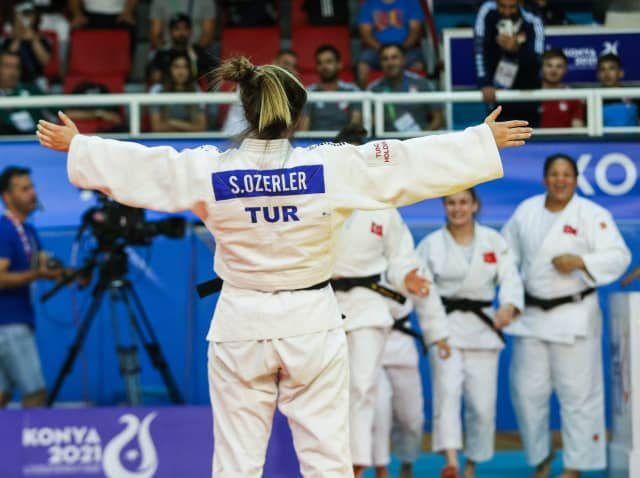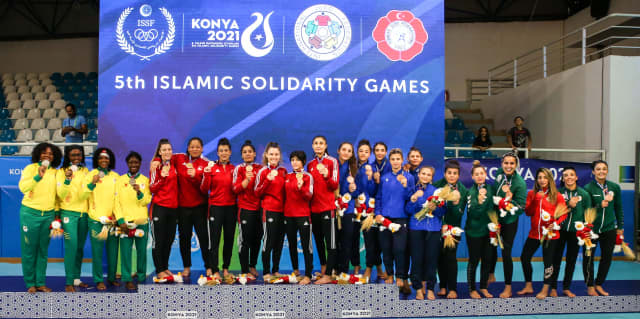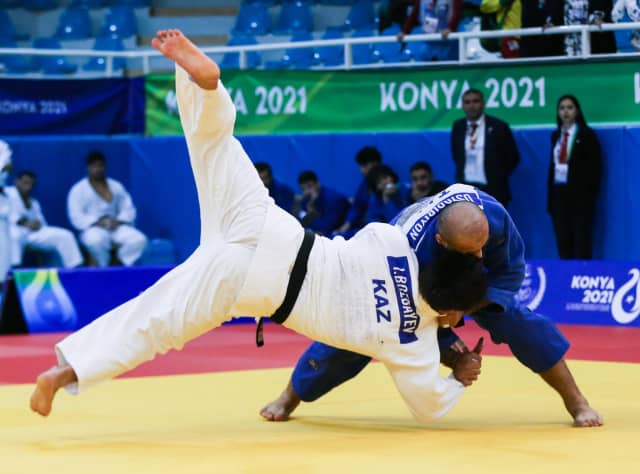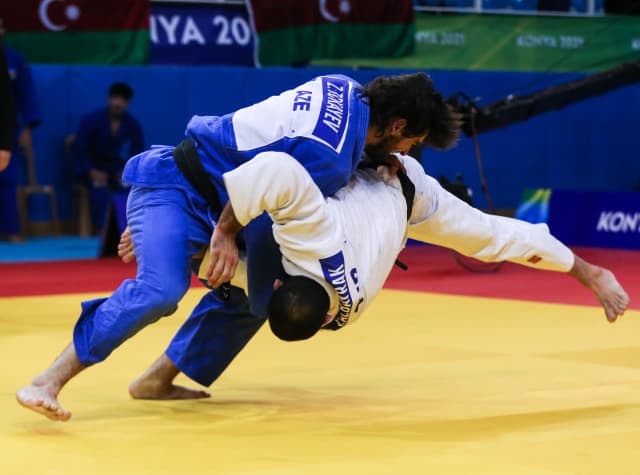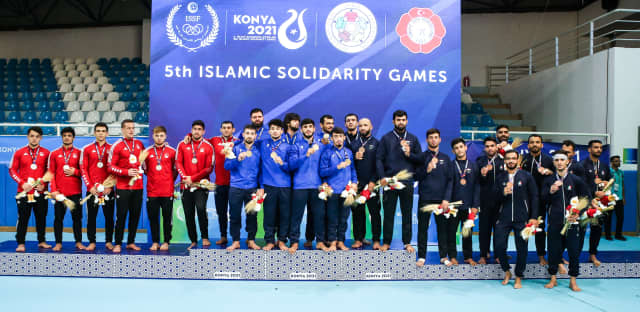On day 3 in Konya there were some differences from the new mixed team norms. In round one, for example, Bahrain’s men beat Kyrgyzstan 3-2 with only a 3 man team. The adapted rules allowed for incomplete teams, encouraging participation and it worked! A second adaptation was that for the Islamic Solidarity Games, men and women competed in separate teams and again this encouraged participation. This system can be found at different levels in many nations, but no matter the exact format, team events always deliver.
The final block couldn’t come soon enough after tantalising preliminaries. In the women’s event, Cameroon capitalised on a touch of luck after the draw offered them a bye in the quarter-final. They used that and put all their energy into winning a semi-final against Kyrgyzstan, a match that was predicted to go Asia’s way. A determined African team wasn’t interested in those predictions, came forward and won. There was no holding Etoua-Biock back, fighting every contest like it was her last. It’s hard to teach that kind of determination; magic to watch.
Turkiye came through the other side of the draw, beating Senegal 3:1 and then Algeria 3:2 in a highly charged semi-final that went right to the final contest. Akdeniz (TUR) was the conductor of team spirit for them, with only hard work and focus in her heart.
The final was less close than Cameroon would have liked, despite Etoua-Biock again giving everything she had. Only the first three contests were fought as Turkiye won them all and took the title for the host nation.
The men’s medal matches began with Kazakhstan competing against a 4 man Tajik team. Tajikistan put in an extraordinary performance in the morning, coming very close to Azerbaijan in the semi-final. With a win on the board by default, Kazakhstan only needed two wins to secure the bronze medal and Ystybay (KAZ) put a score up right away. He held it and pushed the scoreline to 2:0. At -81kg Rizoev (TJK) put paid to a clean sheet for Kazakhstan and threw for ippon with uchi-mata not long after hajime. He was just as decisive on his way to an outstanding bronze medal in the individual competition on day 2. Madzhidov (TJK) also won, to bring things to a head at 2:2.
The Ustopiriyon (TJK) and Bozbayev (KAZ) match-up was fascinating. The former fought at -90kg and the latter at -100kg in the individual competition. The former came out to throw and to win. The tactics of the other were to spoil and play on the edge and in the end the rules provided the blueprint for victory. Ustopiriyon, eventually threw for waza-ari but his opponent then also took a third shido for rule infringements, passivity this time, on top of two for pushing out. The rules are clear: play to throw!
The second bronze medal match was between Senegal and the Islamic Republic of Iran, the latter making light work of the task.
In the final Turkiye bowed on to the mat looking for the double gold but against Azerbaijan nothing is ever certain. This was not Azerbaijan’s A team and faced with Albayrak and Zgank, among others, should have meant an uphill climb. In fact Zgank had no contest as Azerbaijan put forward a 4 man team and with Gasimov at the top end it was not sensible to leave it up to the last contest.
However, that is what happened. At 2:2 it was Sismanlar’s task to take on the world and Olympic medallist, himself pitching only two junior world medals, not insignificant but also not in the same league. It wasn’t a pretty match but the experience of Gasimov proved pivotal and gold went to Azerbaijan. Silver for Turkiye was enough, though, to keep them at the top of the team event medal table. Turkiye had a gold and a silver, Azerbaijan a gold and a bronze.
Throughout this Games in Konya there have been wonderful comments about the professionalism of the judo event, from the organisation to the spirit and beyond. It’s a thumbs up to the judoka for their exciting judo and a thumbs up to the organisers for a smooth and inclusive event. Thank you Konya and thank you to the Turkiye Judo Federation and Olympic Committee.

